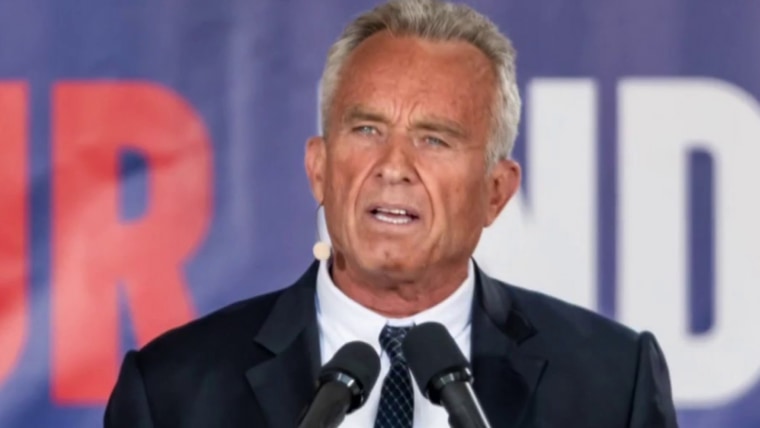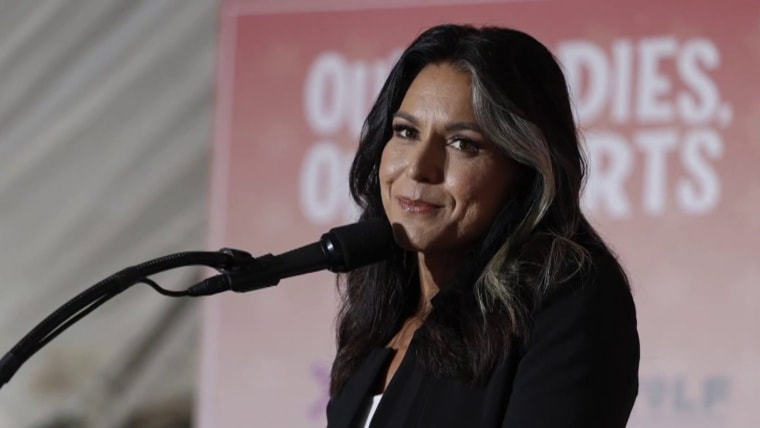President-elect Donald Trump’s pick of former Democratic lawmaker Tulsi Gabbard for director of national intelligence is an odd and disconcerting choice. She has no formal intelligence experience, and, as someone who has a history of lapping up disinformation, she seems especially ill-suited for a position that’s all about being able to tell the difference between good and bad information. And while fortunately she adamantly opposes the neoconservative elements of the Republican Party, she isn’t the dove that she sometimes presents herself as.
The job of DNI is hugely important when it comes to foreign policy. The position, which was created after the Sept. 11, 2001, attacks, involves overseeing 18 intelligence agencies and preparing the president’s daily intelligence briefing. It’s a high-stakes advisory position, but also a bureaucratic one since it involves so much inter-agency coordination.
Gabbard has a track record of being susceptible to misinformation and boosting Russian propaganda.
Gabbard, an Iraq War veteran, has attracted attention from people across the political spectrum for her strident criticism of American wars. She was a critic of the U.S. interventions in Afghanistan and Iraq and generally opposed the post-9/11 bipartisan consensus on regime change and nation-building. She also rightly criticized then-President Trump for withdrawing from the Iran nuclear deal.
Those are good positions, but those positions alone don’t make her a progressive on foreign policy. She has also called herself a “hawk” on terrorism, backed sovereignty-violating drone warfare, and has supported brutal authoritarian repression of civilian rebels under the banner of fighting Islamism. As a congresswoman, she met personally with Syrian President Bashar al-Assad despite his vicious use of force against rebels and civilians in the weeks prior. She has also compared Russian President Vladimir Putin favorably to President Barack Obama while advocating for bombing Syria. She has accused pro-Palestinian protesters of being “puppets” of “a radical Islamist organization,” and her rhetoric surrounding defeating Hamas suggests she’s aligned with the U.S.’s support of Israel’s brutal military operation in Gaza.

Gabbard has a track record of being susceptible to misinformation and boosting Russian propaganda. As NBC News explains, two years ago “Gabbard posted a video on social media asserting ‘the undeniable fact’ of purported bio labs funded by the U.S. across Ukraine. … Ukraine’s government, the U.S. government, news organizations and independent researchers have all said there is no evidence for the claim, which originated from Moscow.” Gabbard also appeared to buy Assad’s claims that Syrian rebels used chemical weapons in Syria in 2017, but U.S. intelligence agencies, the United Nations and the Organization for the Prohibition of Chemical Weapons all attribute the attacks to Assad, NBC reports.
If Gabbard’s troubling track record of foreign policy positions are any indication, in the role of director of national intelligence she would be positioned to advise Trump to make decisions that are not in the country’s best interest or in line with international law. That could include, for example, persuading Trump to align with Russia in such a way that gives Moscow a particularly strong hand as Trump looks to negotiate a settlement in the war in Ukraine. More broadly, she could help craft a policy regime that effectively emboldens Russia to behave more aggressively in the international arena.
But while Gabbard — if confirmed by the Senate — would be one of many voices trying to influence Trump on foreign policy, what is potentially more consequential is how she could use access to intelligence to influence the American public directly. Whether through hearings with lawmakers or leaks to the press, Gabbard would have the capacity to cherry-pick intelligence to make a case to the public about alleged deep state machinations or radical, potentially reactionary shifts in foreign policy. Between Gabbard's idiosyncratic foreign policy outlook, activist past, softness on Russia and selective hawkishness, it's hard to say how things would shake out during her tenure.
It’s better to have someone with Gabbard’s instincts than a proper neoconservative at her post. Still, her idiosyncrasies make her unpredictable, and her history of cozying up to authoritarians is far from comforting.

